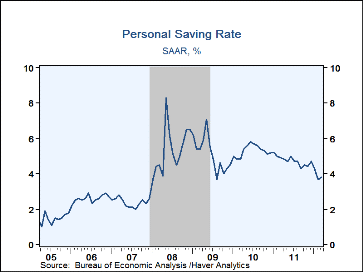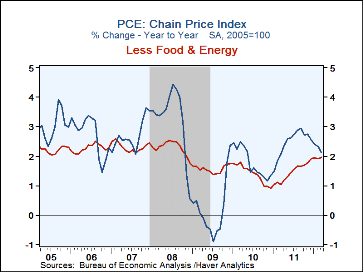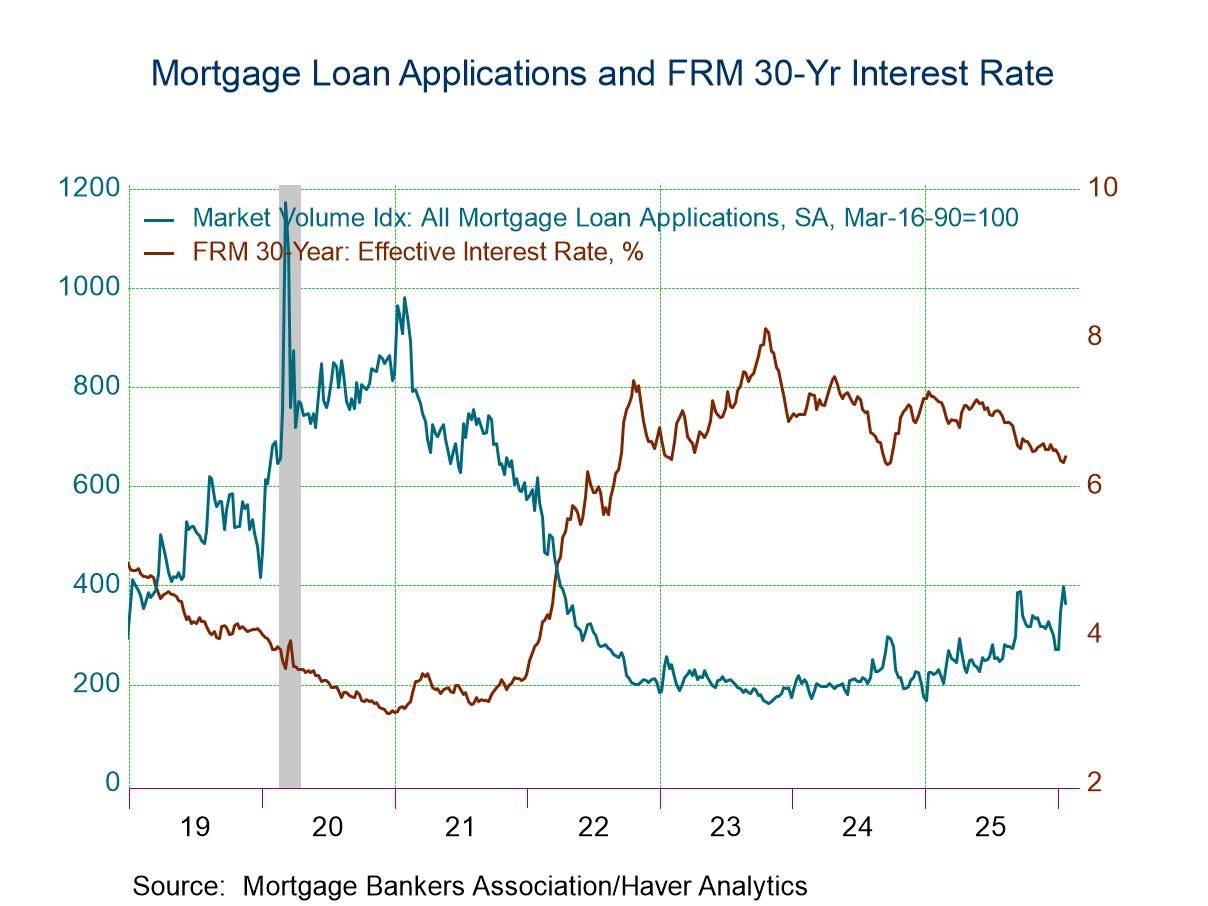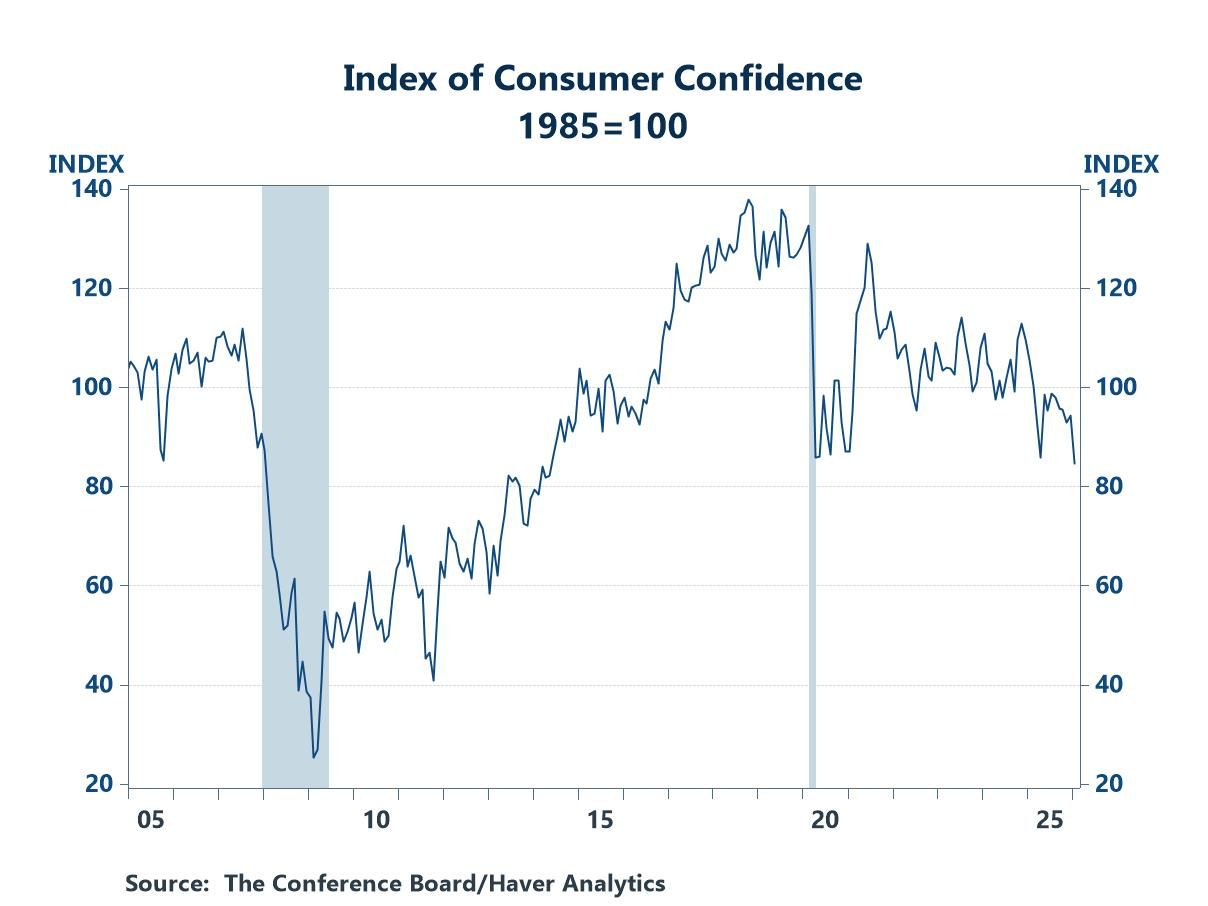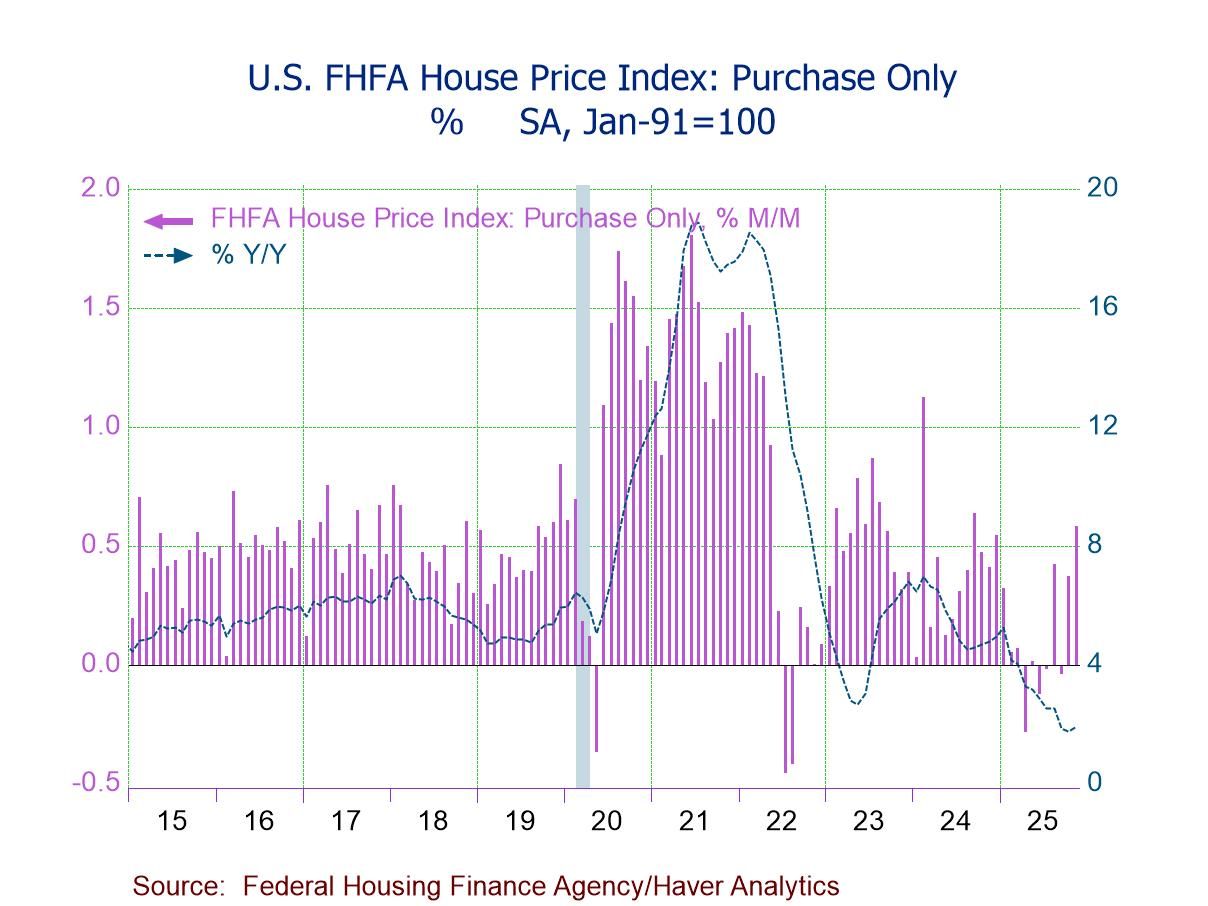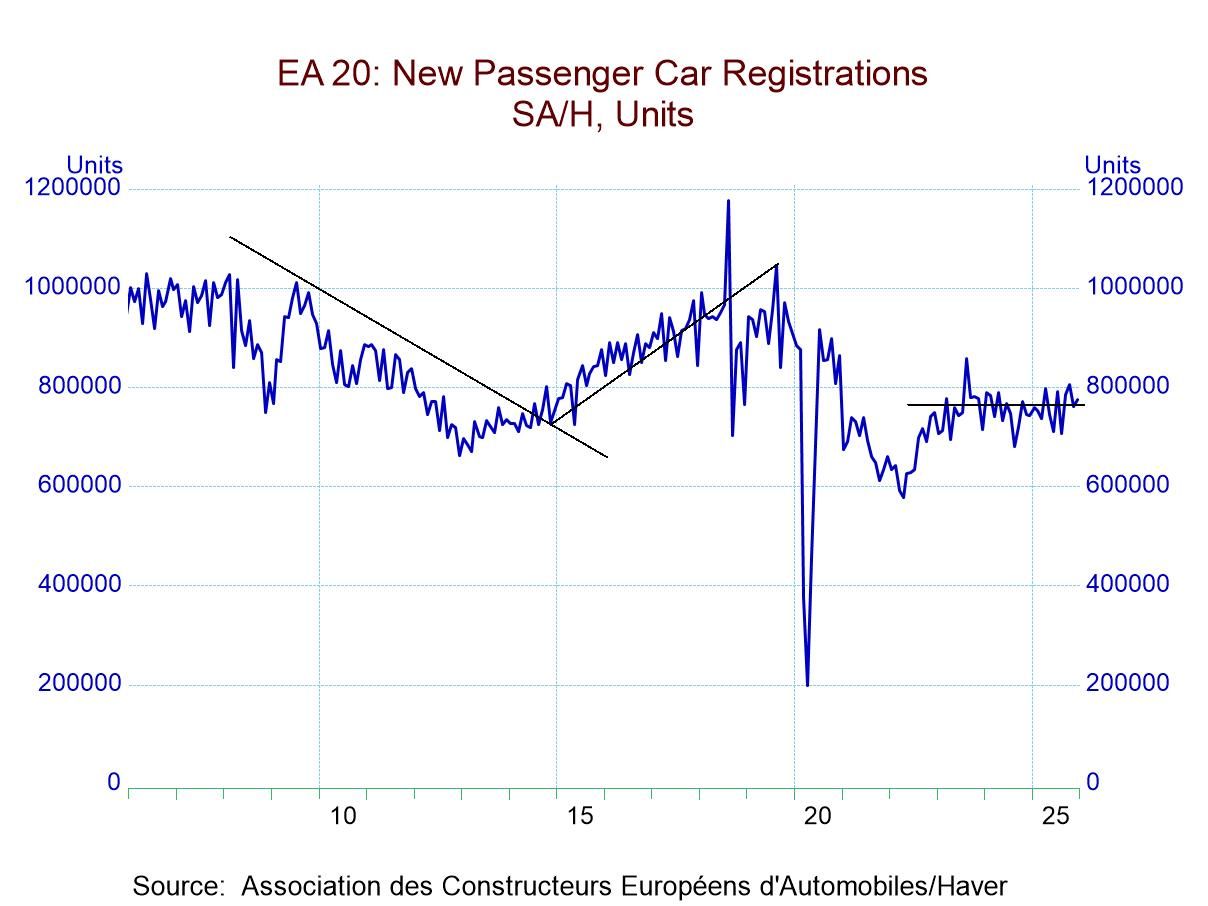 Global| Apr 30 2012
Global| Apr 30 2012U.S. Personal Income Gain Helps Stabilize Savings Drawdown
by:Tom Moeller
|in:Economy in Brief
Summary
Consumers adopted a more conservative approach to their income last month. Personal income increased 0.4% (3.2% y/y) during March after a 0.3% February increase, last month reported as 0.2%. Last month's increase reflected a 0.3% rise [...]
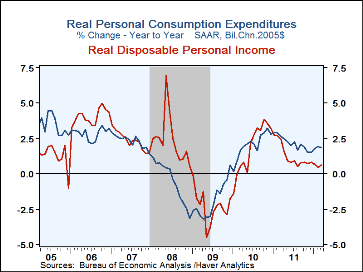 Consumers adopted a more conservative approach
to their income last month. Personal income increased 0.4% (3.2%
y/y) during March after a 0.3% February increase, last month reported as
0.2%. Last month's increase reflected a 0.3% rise (4.4% y/y) in wages and
salaries after three months of 0.4% increase. Rental income surged 0.9%
(11.8% y/y) as home renting remained strong relative to ownership.
Proprietors' income increased 0.6% (3.3% y/y). Lower interest rates
continued to weigh on interest income which rose 0.3% for the third
straight month, but it fell 2.3% y/y. Conversely, dividend income jumped
0.7% (6.2% y/y) with strong corporate profitability.
Consumers adopted a more conservative approach
to their income last month. Personal income increased 0.4% (3.2%
y/y) during March after a 0.3% February increase, last month reported as
0.2%. Last month's increase reflected a 0.3% rise (4.4% y/y) in wages and
salaries after three months of 0.4% increase. Rental income surged 0.9%
(11.8% y/y) as home renting remained strong relative to ownership.
Proprietors' income increased 0.6% (3.3% y/y). Lower interest rates
continued to weigh on interest income which rose 0.3% for the third
straight month, but it fell 2.3% y/y. Conversely, dividend income jumped
0.7% (6.2% y/y) with strong corporate profitability.
Individuals enabled the income gain to stabilize the earlier draw-down of savings. The personal savings rate ticked up to 3.8% from an unrevised 3.7% during February. Nevertheless, it remained below the 4.9% level twelve months ago and at a 2010 monthly high of 5.8%.
Growth in personal consumption expenditures eased to just 0.1% following a 0.5% February increase, revised from 0.8%. Last month's weakness reflected a 2.2% decline (+13.1% y/y) in motor vehicle purchases which was a breather after several months of strong gain. Conversely, furniture expenditures rose a strong 1.0% (6.8% y/y) and clothing spending increased 0.5% (5.9% y/y). Higher gasoline prices increased purchases by 3.6% but less driving & more fuel efficient vehicles limited the y/y gain to 3.5%. Purchases fell 2.7% y/y when adjusted for higher prices. Spending on services inched up 0.1% (3.3% y/y), the y/y gain boosted by 7.2% y/y growth in recreation and a 6.3% annual rise in food services & accommodations as they traveled more.
The PCE chain price index rose 0.2% an easier last month (2.1% y/y). The increase reflected a 1.7% rise (6.4% y/y) in gasoline prices after a 5.7% February increase. The core PCE price index increased 0.2% and the y/y increase of 2.0% was up from the record low 12-month change of 0.9% reached last December.
The personal income & consumption figures are available in Haver's USECON and USNA databases. The expectations figures are in the AS1REPNA database.
| Personal Income & Outlays(%) | Mar | Feb | Jan | Y/Y | 2011 | 2010 | 2009 |
|---|---|---|---|---|---|---|---|
| Personal Income | 0.4 | 0.3 | 0.3 | 3.2 | 5.1 | 3.7 | -4.3 |
| Wages & Salaries | 0.3 | 0.4 | 0.4 | 4.4 | 4.3 | 2.2 | -4.3 |
| Disposable Personal Income |
0.4 | 0.2 | 0.1 | 2.8 | 3.8 | 3.6 | -2.1 |
| Personal Consumption Expenditures |
0.1 | 0.5 | 0.3 | 1.8 | 4.7 | 3.8 | -1.7 |
| Personal Saving Rate | 3.8 | 3.7 | 4.3 | 4.9 (Mar.'11) |
4.7 | 5.3 | 5.1 |
| PCE Chain Price Index | 0.2 | 0.3 | 0.2 | 2.1 | 2.5 | 1.8 | 0.2 |
| Less Food & Energy | 0.2 | 0.1 | 0.2 | 2.0 | 1.4 | 1.4 | 1.6 |
| Real Disposable Income |
0.2 | -0.1 | -0.1 | 0.6 | 1.3 | 1.8 | -2.3 |
| Real Personal Consumption Expenditures |
0.1 | 0.5 | 0.3 | 1.8 | 2.2 | 2.0 | -1.9 |
Tom Moeller
AuthorMore in Author Profile »Prior to joining Haver Analytics in 2000, Mr. Moeller worked as the Economist at Chancellor Capital Management from 1985 to 1999. There, he developed comprehensive economic forecasts and interpreted economic data for equity and fixed income portfolio managers. Also at Chancellor, Mr. Moeller worked as an equity analyst and was responsible for researching and rating companies in the economically sensitive automobile and housing industries for investment in Chancellor’s equity portfolio. Prior to joining Chancellor, Mr. Moeller was an Economist at Citibank from 1979 to 1984. He also analyzed pricing behavior in the metals industry for the Council on Wage and Price Stability in Washington, D.C. In 1999, Mr. Moeller received the award for most accurate forecast from the Forecasters' Club of New York. From 1990 to 1992 he was President of the New York Association for Business Economists. Mr. Moeller earned an M.B.A. in Finance from Fordham University, where he graduated in 1987. He holds a Bachelor of Arts in Economics from George Washington University.


